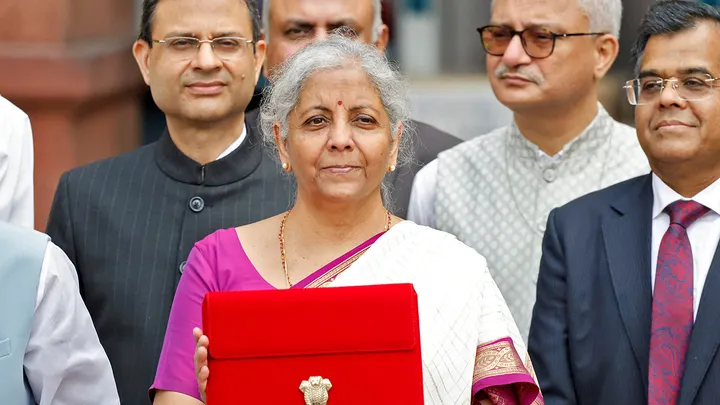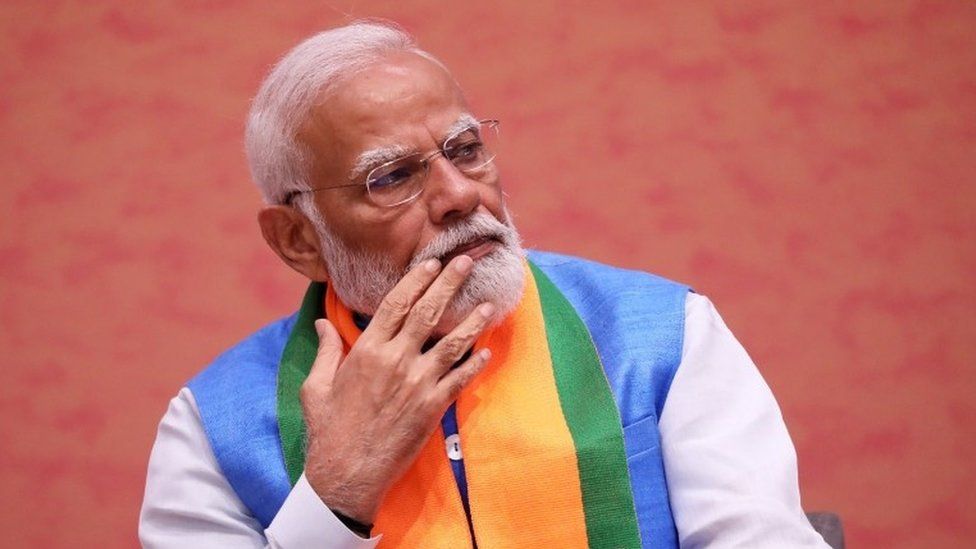In a significant move to strengthen its coalition and regain voter support after recent election setbacks, India’s Modi government has allocated billions of dollars for job creation and key regional development in its latest budget.
Key tax changes in the budget include a higher levy on equity investments to address concerns of an overheated market, alongside lower taxes for foreign companies to attract more investment.
The budget outlines a total of $576 billion in expenditures, featuring $32 billion for rural programs, $24 billion over five years for job creation, and over $5 billion for two states governed by coalition partners.
Finance Minister Nirmala Sitharaman highlighted the focus on employment, skilling, small businesses, and the middle class during her budget presentation on Tuesday. She also announced upcoming reforms in the land and labor sectors.
Despite the increased spending, the government reduced its fiscal deficit target to 4.9% of GDP for the fiscal year ending March 31, 2025, from the previous 5.1%. This was facilitated by a substantial $25 billion surplus from the central bank. Additionally, gross market borrowing was slightly lowered to 14.01 trillion rupees.

Economists attribute the BJP’s recent election losses to rural distress and a weak job market, emphasizing the need for land and labor reforms to sustain strong economic growth. India’s economy grew 8.2% last fiscal year, with projected growth of 6.5% to 7% for this fiscal year.
HDFC Bank’s principal economist, Sakshi Gupta, praised the budget for balancing growth policies with fiscal discipline. However, Moody’s Ratings’ Gene Fang noted the challenges in implementing ambitious reforms.
Past attempts to ease company access to land and streamline staff layoffs have faced resistance due to potential protests.
To boost employment, the budget includes incentives for staff training and cheaper loans for higher education. India’s urban unemployment rate stands at 6.7%, though the Centre For Monitoring Indian Economy estimates it at 8.4%.

Long-term infrastructure spending remains steady at 11.11 trillion rupees, with 1.5 trillion rupees allocated in long-term loans to states, linked to reform milestones in land and labor.
In a nod to coalition partners, Sitharaman announced expedited loans from multilateral agencies for Bihar and Andhra Pradesh.
Tax Changes
Equity investment taxes for holdings under a year were raised to 20% from 15%, while long-term holdings saw an increase to 12.5% from 10%. These changes take effect from Wednesday. The tax on equity derivative transactions, popular among retail investors, will be implemented from October 1.
Shares and the rupee initially declined following the budget announcement but recovered, with main stock indexes NSEI and BSESN closing down about 0.13%.
Vineet Arora of NAV Capital Emerging Star Fund sees the tax changes as a short-term negative but believes they will stabilize the market and attract long-term investors.
